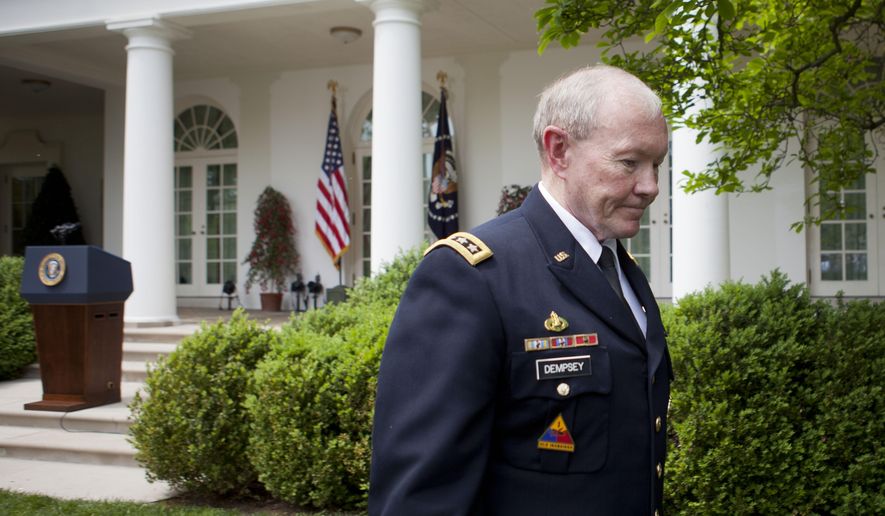OPINION:
On March 6, 2014, America’s highest-ranking military officer, Chairman of the Joint Chiefs of Staff Gen. Martin Dempsey, called anti-personnel land mines “an important tool in the arsenal of the armed forces of the United States.”
Barely six months later, the Obama administration all but removed that tool from the U.S. arsenal by declaring the U.S. would not use land mines outside the Korean Peninsula. The Trump administration has now rightly overturned that policy.
As Gen. Dempsey’s comments illustrate, the Obama administration didn’t base its policy on military advice. In fact, when the administration announced its decision, it stated that the Pentagon would conduct a study of the operational impacts of abandoning land mines.
That’s a bad way to make policy: announce first, study later.
Worse, NATO had already studied the U.S. use of land mines. It agreed with Gen. Dempsey. So did the National Research Council. The Obama administration took its decision in defiance of the most advanced simulations and professional military opinion alike.
Why? Because the Obama administration wanted, in its own words, to “underscore its commitment to the spirit and humanitarian aims of the Ottawa Convention,” a treaty that bans the use of certain kinds of anti-personnel land mines.
The U.S. hasn’t signed the Ottawa Convention. The Senate hasn’t ratified it. The Obama administration was trying to slip the U.S. into compliance with it through the back door. That’s not the way the U.S. treaty process works.
Supposedly, humanity needs the convention because land mines that remain on a battlefield after the war is over are unacceptably dangerous to civilians. Every year, the anti-mine activists trot out a study trumpeting the terrible casualty toll imposed by land mines.
But when you look into their numbers, you find that most of the casualties aren’t caused by land mines. They’re caused by IEDs, or by leftover bombs that don’t explode when they’re intended to. The activists just include the leftover bombs to inflate the casualties they can report.
In fact, conventional land mines caused only 332 casualties — deaths and injuries — worldwide in 2018. So according to the data reported by the activists themselves, anti-personnel land mines make only a vanishingly small contribution to civilian suffering.
And U.S. land mines aren’t going to be lingering on the battlefield. The U.S. uses advanced, nonpersistent land mines that turn off after a set time.
Needless to say, Russia hasn’t signed the Ottawa Convention. Nor has China or Iran. And the world’s terrorists haven’t stopped using IEDs that act like land mines — far from it. The Ottawa Convention has succeeded only in disarming and weakening the defenses of the democracies.
Haven’t we had enough of the idea that if only the democracies set a good example, the autocracies and the terrorists will follow suit? This isn’t true now, and it never has been. Unilateral disarmament impresses only democracies, not democracy’s enemies.
In the hands of a professional military like that of the U.S., the point of land mines is not to cause mass casualties. It’s to slow down enemy forces, deny them territory and channel them into controlled lines of attack. Land mines shape the battlefield.
And the U.S. has a lot of potential battlefields where the defensive use of land mines could prove useful. It faces continuing challenges from insurgents, who target the civilian populations the U.S. seeks to defend. And it faces adversaries like Russia and China, which can enjoy overwhelming manpower superiority at their chosen point of attack.
The Trump administration has emphasized that land mines need to be used responsibly, in accordance with the international obligations that the U.S. has accepted and in ways that minimize unintended civilian casualties. That’s as true of land mines as it is of any other weapon.
Land mines are just what Gen. Dempsey said in 2014: a tool in the U.S. arsenal. The Trump administration was right to restore them to that arsenal.
⦁ Ted R. Bromund is a senior research fellow in The Heritage Foundation’s Margaret Thatcher Center for Freedom.




Please read our comment policy before commenting.